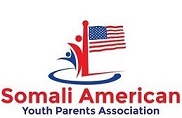SAYPA proposes to develop cultural competencies project that addresses the needs of immigrant seniors, particularly Somali seniors who live in Boston and its surrounding areas. Somali senior community needs are unique in that both culture and religion play a major role in their lives
SAYPA, through its various programs and projects within the community, has developed a network of resources that can support this group by connecting seniors with these specific resources. For example, Somali society is a traditionally oral society. Storytelling is an important tradition senior community members pass on tradition and communal values to younger generations. SAYPA will provide a venue for seniors from the community to gather and socialize among other seniors in an inclusive, safe, and culturally appropriate environment. This project also aims to develop capacity and services to specifically address issues faced by immigrant seniors. The aim is to allow seniors from diverse populations to live in their communities with dignity, respect, and independence for as long as they are able. The Senior Immigrant Social Participation and Inclusion project will identify, and link to services that support immigrant seniors’ independence include helping with their daily living, accessible and affordable transportation, opportunities for recreation and socialization, individual care and firsthand information about seniors programs in Boston. These are some of the issues these senior faces that we would like to address: 1.Negative racial and cultural stereotypes 2.Lack of access to available basic services and programs 3.Isolation and disconnection from the society 4.Scarcity of interpretation services and translated materials 5. Insufficient English language skills to use technology or public transportation 6.Lack of access to the Internet
Budget $51,000.00
Category Arts, Culture & Humanities, General/Other Cultural & Ethnic
Awareness
Population Served Aging, Elderly, Senior Citizens Adults Africa
Program Short-Term Success: This project will enable seniors to live independently in their own homes and communities by providing safe and effective supports that are responsive to the diverse needs of ethnocultural seniors. Each culture views seniors and their role in society differently. By building on the strengths of each community, services will be developed that are culturally appropriate and supportive.
Program Long-Term Success: As our population ages and the demographics demonstrate the number of ethnocultural seniors in Boston has become increasingly apparent that we need to be more responsive to their specific needs. Various research and needs assessment work done over the last decade has shown the various barriers and issues impacting new immigrant communities in the United States. These barriers prevent community members, such as seniors, women, youth, families, and children, from accessing the social support programs and resources that are available to the American mainstream population. The Senior Immigrant Social Participation and Inclusion project aim is to have seniors speak on their views regarding the challenges of Somali community and cultural differences that impact Somali seniors. Making use of the wealth of expertise seniors have and cultural knowledge regarding tradition and values will aid in breaking down social barriers to full and meaningful participation in Bostonian society.
Program Success Monitored By:
Examples of Program Success:
CEO/Executive Director/Board Comments:
Weare a community-based organization with a strong core group of professionals and volunteers who all share one common bond; a sincere desire to make a difference for those who need the light of knowledge and motivation in order to improve their lives. SAYPA’s objectives include promoting community development programs, through community-based projects, which would provide community development services, skills development, youth empowerment, senior supports, housing, crime prevention, and various other activities.
[give_form id=”403″]
[wp_paypal_payment]
